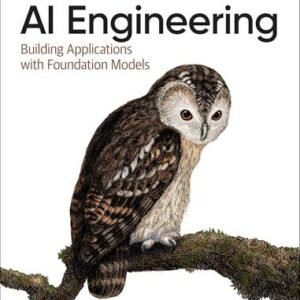In recent years, the intersection of biotechnology and artificial intelligence (AI) has sparked a revolution poised to reshape the landscape of life sciences. As we stand on the brink of unprecedented technological advancements, the integration of AI into biotech research and applications is not merely an enhancement; it’s a transformative force driving innovation and efficiency. From accelerating drug discovery to refining genetic research and optimizing clinical trials, AI is proving to be a game-changer, offering unparalleled data processing capabilities and insights.
In this article, we will explore the profound impact that AI is having on the biotechnology sector, highlighting key developments, emerging trends, and the future potential of this dynamic partnership. Join us as we delve into how AI is not only enhancing our understanding of biological systems but also creating new possibilities for treating diseases and improving human health. Whether you’re a seasoned professional in the field or a curious newcomer, understanding this synergy is essential as we navigate the next chapter of life sciences.
Table of Contents
- Advancing Drug Discovery Through AI-Driven Insights
- Enhancing Personalized Medicine: The Role of Machine Learning
- Streamlining Clinical Trials: Harnessing AI for Efficiency
- Ethical Considerations in AI Applications for Biotechnology
- In Conclusion
Advancing Drug Discovery Through AI-Driven Insights
The integration of artificial intelligence in drug discovery is unlocking unprecedented pathways to innovation, accelerating the process of bringing new therapeutics to market. By leveraging algorithms that analyze vast amounts of biological data, researchers can identify potential drug candidates with remarkable efficiency. Key technological advancements are leading to:
- Enhanced data analysis: AI-driven tools can sift through complex datasets to uncover hidden patterns, facilitating the identification of viable drug targets.
- Predictive modeling: Machine learning models can predict how different compounds will behave in biological systems, streamlining the selection of candidates for further development.
- Optimized compound design: Generative algorithms enable the design of novel molecules that have a higher likelihood of therapeutic efficacy.
The ability to harness AI not only improves the speed of drug discovery but also significantly reduces costs associated with clinical trials. By simulating trials and predicting outcomes, researchers can make data-driven decisions earlier in the process. Below is a comparison table highlighting the traditional drug discovery process versus the AI-enhanced approach:
| Aspect | Traditional Approach | AI-Enhanced Approach |
|---|---|---|
| Timeline | 10-15 years | 2-5 years |
| Cost | $2-3 billion | $1 billion |
| Success Rate | 1 in 10,000 | 1 in 5,000 |
Enhancing Personalized Medicine: The Role of Machine Learning
Machine learning is revolutionizing the field of personalized medicine by enabling more accurate predictions about patient responses to treatments. Advanced algorithms can analyze vast amounts of genetic, biochemical, and clinical data, allowing healthcare providers to tailor interventions based on individual patient profiles. This customization is not just about selecting the right medication; it extends to optimizing dosages, anticipating side effects, and even predicting future health risks. As a result, the traditional one-size-fits-all approach is being replaced with precision-targeted therapies that consider unique characteristics of each patient.
Moreover, machine learning tools can enhance the predictive power of disease models, aiding in the early detection of conditions that typically go unnoticed until they advance. By employing techniques such as deep learning and natural language processing, researchers can uncover patterns in electronic health records and clinical trial data that were previously obscured. The integration of AI-driven solutions in diagnostics and treatment planning leads to a more responsive healthcare system that not only improves patient outcomes, but also optimizes resource allocation across healthcare facilities. The following table summarizes key benefits of integrating machine learning in personalized medicine:
| Benefits | Description |
|---|---|
| Improved Accuracy | Enhances prediction of treatment responses. |
| Early Detection | Identifies diseases at earlier stages. |
| Custom Treatments | Delivers therapy tailored to individual genetics. |
| Resource Optimization | Streamlines healthcare operations and resource use. |
Streamlining Clinical Trials: Harnessing AI for Efficiency
In the rapidly evolving landscape of biotechnology, artificial intelligence is emerging as a transformative force in the execution and management of clinical trials. AI technologies can enhance the efficiency of trial processes through:
- Predictive Analytics: Leveraging vast datasets to forecast patient recruitment trends and optimize trial designs.
- Automation: Streamlining repetitive tasks, such as data entry and monitoring, allowing researchers to focus on critical decision-making.
- Patient Stratification: Utilizing machine learning models to identify and select the most suitable candidates based on genetic and demographic data.
Moreover, AI’s ability to continuously learn from incoming data can significantly reduce timelines and costs associated with clinical trials. By employing advanced algorithms, researchers can analyze real-time data to:
- Monitor Adverse Events: Quickly identify and mitigate potential risks to participants.
- Enhance Data Integrity: Ensure the accuracy and quality of data collected, fostering trustworthy results.
- Optimize Resource Allocation: Effectively distribute personnel and materials based on predictive models, increasing overall productivity.
Ethical Considerations in AI Applications for Biotechnology
As artificial intelligence increasingly permeates the biotechnology landscape, it brings forth a myriad of ethical considerations that demand careful scrutiny. When leveraging AI for drug discovery, genetic analytics, or personalized medicine, stakeholders must grapple with the implications of bias in algorithms. Potential biases can arise from unrepresentative training datasets, leading to unequal access to advancements in healthcare and possibly exacerbating existing health disparities. To mitigate these risks, it is essential that the datasets used for training AI systems are diverse and incorporate a range of demographic variables, including age, ethnicity, and socioeconomic background.
Moreover, there is a pressing need for transparency and accountability in AI-driven biotechnology applications. As AI systems make decisions impacting patient lives, understanding the decision-making process becomes paramount. This necessitates clear communication about how algorithms function and the criteria they use to derive conclusions. Implementing robust frameworks for ethical governance is crucial. Consider the following ethical pillars when developing AI solutions in biotechnology:
- Fairness: Ensuring equitable outcomes across varied populations.
- Transparency: Openness in AI processes and methodologies.
- Accountability: Holding developers responsible for AI repercussions.
- Privacy: Safeguarding sensitive personal data from misuse.
| Ethical Principle | Description |
|---|---|
| Fairness | Striving for unbiased algorithms that serve all populations appropriately. |
| Transparency | Making AI processes understandable for users and stakeholders. |
| Accountability | Establishing structures that hold AI developers and users responsible. |
| Privacy | Ensuring data protection and ethical use of patient information. |
In Conclusion
As we conclude our exploration of the transformative intersection between biotechnology and artificial intelligence, it’s clear that we are standing on the brink of a new era in life sciences. The convergence of these two fields is not just enhancing research and development; it is revolutionizing how we approach some of humanity’s most pressing challenges, from disease treatment to sustainable agriculture.
The applications of AI in biotechnology are vast and diverse, facilitating everything from personalized medicine to advanced genetic engineering. As stakeholders across academia, industry, and healthcare continue to collaborate and innovate, we can expect to witness unprecedented advancements that will bridge the gap between laboratory discoveries and tangible benefits for society at large.
However, with great power comes great responsibility. As we embrace the potential of AI in biotechnology, it is crucial to remain vigilant about ethical considerations, data privacy, and regulatory frameworks that safeguard public trust. The dialogue around these issues must evolve in tandem with technological advancements to ensure that we harness AI’s full potential for the greater good.
In closing, the future of biotechnology, illuminated by the capabilities of artificial intelligence, is not just about innovation—it’s about creating a healthier, more sustainable world. As these technologies continue to develop, we encourage our readers to stay informed, engage in conversations, and be part of the journey that will redefine what’s possible in life sciences. Together, we can ensure that this exciting transformation benefits not just a few, but all of humanity.





